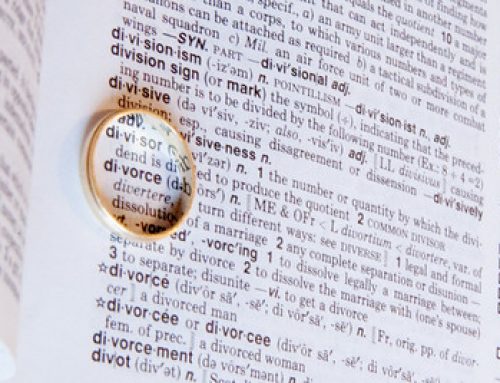Summary
On 22 February 2022, the family court reversed a divorce that had been issued 12 years prior as the wife was unaware it had happened.
The husband had since remarried.
The family court, following an eight-day fact-finding hearing and considering the accounts of nine different witnesses, found in favour of the wife and set the Decree Absolute aside.
The Law
(The below was the applicable law at the time this case was heard. As of 6 April 2022, the law has changed. Please see the changes in our article here.)
In order to obtain a divorce in England and Wales, the party applying for the divorce (known as “the petitioning party”) needs to be able to demonstrate that the parties have been married for at least one year and the marriage has irrevocably broken down. Prior to 6 April 2022, the latter could only be established by proving one of five grounds. Those were: adultery, unreasonable behaviour, separation for two years and consent by the other party, separation for five years or that the other party has deserted the petitioning party.
The petitioning party was required to file a divorce petition with the court to outline which ground it intends to rely upon (amongst other things) and the relevant details relating to the same.
The petition would then be served upon the other party who may file an acknowledgement of service. The acknowledgement confirms whether the other party agrees with the petition, with the divorce and/or with the circumstances detailed within the petition.
If satisfied that the conditions of a divorce are met, the court would then issue a “Decree Nisi”. This certificated that the parties were entitled to apply for a Decree Absolute and finalise the divorce between the parties.
The Petition
In this case, the husband petitioned for divorce on 22 January 2010 on the grounds of Mrs Randhawa’s unreasonable behaviour.
He claimed that the parties had agreed to divorce in secret due to cultural reasons and to avoid embarrassing their children. The petition (which was not completed by a solicitor) incorrectly stated that the parties lived apart and the husband had left the matrimonial home in 2009.
The acknowledgement of service was signed, filed and the husband subsequently applied for and obtained a Decree Absolute.
The wife claims that she was wholly unaware that she was divorced and the first she heard of it was in December 2019 when she applied to the court for judicial separation.
The court did not accept the husband’s evidence and, instead, found that the husband:
“…is a man who would take any necessary steps to achieve his ends and where such steps fall foul of the law or morality, he seeks to deny his conduct unless faced with no other option but to admit the same.”
The court concluded that the signature on the acknowledgement of service was forged on or on behalf of the husband.
The divorce was set aside.

Image: Cordell and Cordell, (CC BY 2.0)
Bigamy
It transpires that at the time of filing the petition, the husband was in a relationship with a Ms Kaur and she was pregnant.
On 1 September 2010, he and Ms Kaur had a son named Manpreet (the same name of the second child of Mr and Mrs Randhawa, who tragically died at 14 years old). Mrs Randhawa was not aware at the time of Manpreet’s birth or that Mr Randhawa was in a relationship. According to Mrs Randhawa, Mr Randhawa only left the matrimonial home in March 2011 (eleven months after the divorce had been finalised).
Mr Randhawa and Ms Kaur married on 6 September 2011.
The court found that Mr Randhawa had fraudulently obtained the divorce from Mrs Randhawa. Which means when he married Ms Kaur in 2011, Mr Randhawa done so knowing that his divorce was invalid (or at least that his first wife was unaware it had happened). If the marriage between Mr Randhawa and Ms Kaur took place in England and Wales and is recognised under the laws of the same, Mr Randhawa may well be guilty of bigamy, the offence of having more than one spouse. The offence carries with it a sentence of up to 7 years imprisonment. There was no mention of Bigamy or the fact that Mr Randhawa now has two spouses in the judgment.
We always suggest that a client instructs a solicitor when considering divorcing their spouse – the procedure may seem simple but can be unravelled as a result of a procedural irregularity or, in this case, fraud.
Case Details
|
Case No.: |
|
|
Type:
|
|
|
Husband: |
Mr Randwanda |
|
Wife: |
Mrs Randwanda |
|
Married: |
15 August 1978 |
|
Divorced: |
29 April 2010 |
|
Grounds: |
The marriage had irretrievably broken down due to Mrs Randhawa’s unreasonable behaviour |
|
Children: |
Four children of the marriage (all of majority age): Sukhpreet Manpreet (deceased) Gupreet Gurjaspreet One child of H (outside of marriage with Ms Kaur): Manpreet (minor) |
Griffin Law is a dispute resolution firm comprising innovative, proactive, tenacious and commercially-minded lawyers. We pride ourselves on our close client relationships, which are uniquely enhanced by our transparent fee guarantee and a commitment to share the risks of litigation. If you have any specific questions regarding a dispute, please email justice@griffin.law or call 01732 52 59 23.
GRIFFIN LAW – TRANSPARENT FEES. TENACIOUS LAWYERS. TRUSTED PARTNERS.
Nothing in this document constitutes any form of legal advice upon which any person can place any form of reliance of any kind whatsoever. We expressly disclaim, and you hereby irrevocably agree to waive, all or any liability of any kind whatsoever, whether in contract, tort or otherwise, to you or any other person who may read or otherwise come to learn of anything covered or referred to in this document. In the event that you wish to take any action in connection with the subject matter of this document, you should obtain legal advice before doing so.
© Griffin Law Limited, 2022. All rights reserved.



